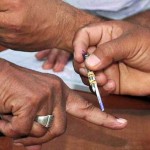IDR Blog
Nepal: Federal and State Governments on a Collision Course
It was in September 2015 that a federal Constitution was implemented with three tiers of administration- at the local level- the provincial level and at the federal level.
In the elections that followed the new Constitution, the Ruling Party- the NCP not only got an overwhelming majority at the centre but had also formed provincial governments in six of the seven provinces. The lone exception- Province No. 2 consisting of most of the districts of Terai was ruled jointly by two Terain parties,but was also supported for a while by the Ruling Party at the Centre- the NCP.
With this commanding majority both at the centre and in six of the seven provinces it was expected that powers held so far by the centre would soon be devolved on the States as envisioned in the new Federal Constitution. But it turns out that the Centre has not addressed most of the issues raised by the states so far and so long. This is being attributed to the mind-set of the leaders at the Capital Kathmandu who perhaps have not realized the full meaning and scope of the federal powers vis-à-vis the provinces and the devolution of powers to the States given under the Federal Constitution.
Opposition to the perceived arrogance of the centre towards the provinces is not coming from Province no. 2 alone that is led by parties different from the one at the centre but by the chief ministers of provinces who belong to the same ruling party as that of the centre at Kathmandu. This perhaps is not being realized by PM Oli who when confronted with the division of resources between the Centre and the State, said that he would read up and give a decision! Read up what- one cannot understand!
Articles 232, 234 and 235 provide the mechanism that defines the relationship between the provinces and the States. Article 232 looks upon the relationship as one of “Cooperation, Co-existence and Coordination.” Article 234 defines the role of Inter State Council that is necessary to settle disputes of political nature between the “federation and the provinces and among the provinces” where the PM will chair the council with the Home Minister and Finance Minister as members along with the Chief ministers of Provinces and other Representatives. In Article 235, for coordination among federal, provincial and local administrations, the Parliament shall formulate necessary laws to maintain coordination among the three entities. It is not cooperation or coordination but the reluctance of the centre to give up powers- that appears to be the problem. The Federal Government is yet to enact most of the “umbrella laws” for institutionalizing the federal nature of the constitution at all levels.
In December 2018, the first meeting of the Inter State Council took place. K.P.Oli the Prime Minister explained how the country could move ahead through cooperation among federal, province and local levels. Yet till today the main grievance of the Provinces is the lack of cooperation of the Centre.
In the latest meeting of Inter State Council that took place on April 26th, the Chief Ministers of Provinces appear to have been very disappointed and felt that the PM has not addressed the issues they had been raising for so long. The Chief minister of Gandaki Province Prithvi Subba Gurung was especially very critical. He said that the centre is neither devolving power nor providing resources.
The main issue appears to be the role of the CDO appointed by the Centre and accountable to the centre. What is more galling to the provinces is that in the latest bill on National Security, the CDOs have been given a more prominent role outside the purview of the provincial governments. Province No. ,2 tried in 2018 to have a separate Police Administration Bill with “District Administrative Officers” but it was looked down upon and is not in force yet.
The problem appears to be that the administration in Kathmandu still looks upon the CDOs just as in Panchayat days to control the districts. The CDOs had extraordinary powers and they were used mainly to control the districts from Kathmandu in support of the system! Under the new federal constitution, police administration and law and order are state subjects and cannot be dictated by the centre.
The recent decision of the Centre to recruit teachers in public schools directly to fill up the vacancies was another sore issue that goes against the legitimate powers of the provinces
PM Oli in his meeting of the Inter State Council promised that the rights given by the Constitution to the provinces and the local governments will not be curtailed. Unless he takes the lead to act on his promises, the present situation where the Provinces and the “federal Constitution” appear to be on a collision course will worsen and create more constitutional complications.
What is to be noted is that Province No. 2 which is taking a leading role will get more support from other provinces in their confrontation with the Centre.




